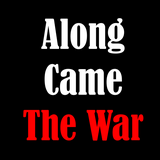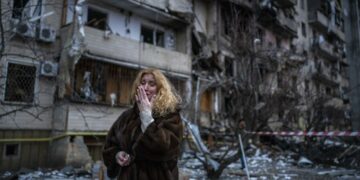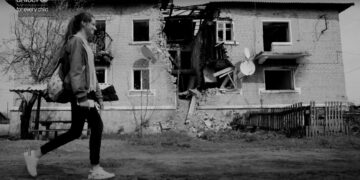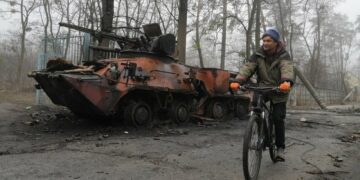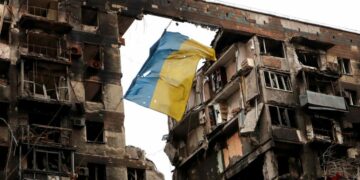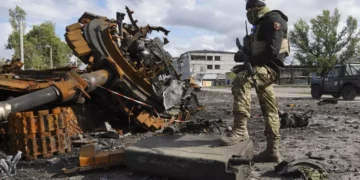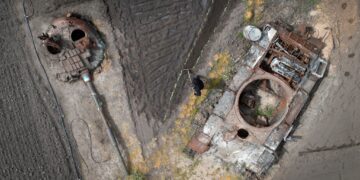By Anastasia Pereverten
I am a second-year college student pursuing my BA in Cultural Studies, and in the second semester of this year, as planned, I study at the University of Wyoming (USA). I left Ukraine on January 13. There was talk of the possibility of war, but to me, surprisingly, it reached echoes with sceptical comments. Three weeks before I left for school, my grandfather had died. Hence, I had an irrational and almost paranoid fear that something might happen to my family while I was away. Here, the thought of war was already frightening.
During the 11-hour flight, the seat next to me was occupied by an elderly man from Utah, who started asking me about Russian troops at the border. When I came to the United States, the fear grew every time someone asked me questions like “How are you preparing for war?”. Personally, I did not prepare, moreover, I objected to them: “You believe your media while they just produce clickbait”. I denied the chance of the new invasion and was furious about everyone in the US discussing it and catastrophizing. Later, Putin’s conference on the 16th of February provoked my laughter, tears, and regular panic. Afterward, I started to spend more time reading the news, donating to “Come Back Alive” and informing Americans about how important it is for them to support Ukraine.
The day when the war started seemed to give me the “hint”. In the morning, I talked to my parents, telling them I was angry with the American media heating the tension with titles of this kind: “Invasion is unavoidable. Putin will attack at 1 am tomorrow”. Suddenly, my father asked, “Nastya, you know what to do if the war starts here, right?”. Dad replied his question himself, not even waiting for my reaction: “Keep on studying”. I said confidently, “Yeah, well, there will be no war.”
At about five o’clock in the evening, a letter from the university administration arrived to all the students and all faculty members, so about 13,000 people received it. The letter said something like: “All those who have ties with Ukraine and Russia – owing to the threat of war – strong historical ties between Ukraine and Russia, the conflict can still be avoided – we offer psychological support”. I read it and exploded with tears being unable to process it: “The war started in 2014, thousands of people died, and you on behalf of an academic school are willing to support Russians”. I immediately wrote a reply, where I explained every mistake of the administration and demanded public correction of those mistakes. Furthermore, I sent it to the president of the university, provost, and international department. Ten emails and an hour later, the president sent me his phone number, suggesting a phone call. At that moment, I was in the dining room, I dropped the fork with rice and chicken and ran outside to find a quiet place for a call. Under the falling snow, for 15 minutes, I was explaining the harshness of their mistake, the president was shocked and sorry, he promised to fix it, and we agreed to call in a couple of hours.
I was overwhelmed with excitement about this diplomatic “victory”, recorded a video message to my mom, and joined my friends back in the dining room to enthusiastically share stories on Ukraine, its music, culture, and history. I was incredibly excited and proud.
The day was coming to an end, it was already about 8. I came to the library to work on my assignments and call my parents (it would be early morning in Kyiv). I had a plan for my narrative on the phone call: recapping the whole thing about me defending the truth about Ukraine and succeeding.
Before starting my assignment, I opened Twitter. Every post in my feed was: “Russia started the war”. The very first thought flashed in my mind: “it’s a fake”. I started Googling and found out that the first explosion in Kyiv happened 20 minutes away from my home. Reading about that, the only thing I could imagine was my house being bombed, my parents and sibling – under the threat if not worse. It’s the end of the world. This fear is numbing.
I could not even start crying when I read it. I was just in shock. The first thing I did was message my friends, parents, andparents and grandparents. No one replied. I started calling them. It was 5 AM in Ukraine, so they were probably asleep. Nobody picked up. Then my dad called me back, saying, “Yes, a couple of explosions happened, but you have nothing to worry about. We’re okay, we’re just waiting for instructions from the government and packing our things in a suitcase in case of evacuation.”
After an hour or so, the initial shock disappeared, and I just started to think of what I can do. Thus, I stayed awake, and the whole night long I was painting. I painted 100 or so stickers of the Ukrainian flag. I don’t know why and what for. Seemingly, my idea was that it would help to spread the word and encourage students to donate or get involved otherwise. I wrote a letter, and I left all the stickers and my letter in the basement of a residence hall. Throughout the whole night, I was tracking news about the war. The most crucial thing I did that night was reaching out to professors and university administration, suggesting a plan of supporting Ukraine on campus. This plan laid the ground for the next three months of my life.

